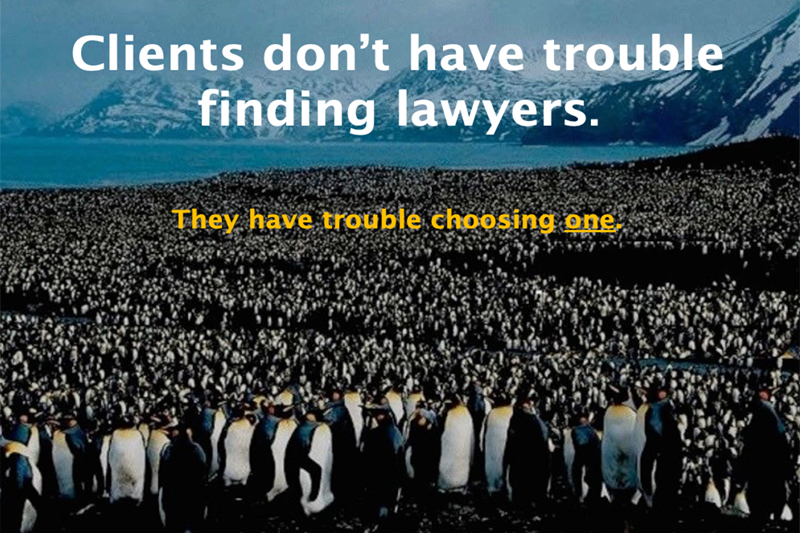

The Internet is the most democratic of platforms. With free access to information and no barriers to entry, clients and customers often know as much, if not more, than those with whom they transact.
Because we all have access to the same content, there is a leveling of power. Buyers have more choices than ever before and often call the shots. With this, comes a decrease in client loyalty. Purchasers negotiate on their own terms. It is not about what you are selling; it is about what they are buying.
We are on the other side of a critical paradigm shift. We are living in a buyer’s market and there is no turning back.
More and more, purchases take place one-on-one. We find the best deal. Because we can.
What does this have to do with the legal marketplace? LinkedIn (proven to be the first stop for those searching for a lawyer) and other social media platforms, business websites, rankings, ratings and recommendations, provide opportunities to examine results and compare and contrast. The abundance of information at our fingertips has changed the conversation and the way we need to connect with clients. Clients don’t have trouble finding lawyers. They have trouble choosing one.
True, it has always been about putting the client first, providing outstanding client service, exceeding expectations for client satisfaction and, importantly, earning client loyalty. Now, however, lawyers must come to clients and prospects with a stable of well-honed client development skills that highlight their uniqueness and enable them to distinguish themselves.
How will you stand out? How will you be the one that is chosen?
Here are some action steps that will move you toward making this new kind of connection:
Everyone can do this. There is no one right way.
Know your strengths. Play to your strengths. Take advantage of your strengths. Go for it!
A version of this article was originally published in The Legal Intelligencer.